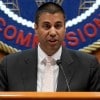Analysis | The Technology 202: YouTube explains how it will moderate political falsehoods just in time for Iowa – The Washington Post

The Iowa caucuses are Feb. 3. (Matt McClain/The Washington Post)
Ctrl + N
Just in time for the Iowa caucuses, YouTube this morning clarified how it’s cracking down on videos spreading falsehoods related to elections — and promised to remove misleading content that could confuse people about how to vote.
The streaming service, drawing from its existing “deceptive practices policies,” said in a blog post that it will remove:
- Content that is “technically manipulated or doctored in a way that misleads users” and “may pose a serious risk of egregious harm.” The company clarified this goes beyond clips taken out of context, and could include, for instance, a video that has been doctored to falsely make it appear that a politician is dead.
- Videos that “aims to mislead people about voting or the census processes.” This could include telling viewers an incorrect voting date.
- Clips that advance “false claims related to the technical eligibility requirements” for politicians to serve in office. For instance, this could apply to falsehoods about a candidate’s citizenship status and their eligibility for a particular office.
“Over the last few years, we’ve increased our efforts to make YouTube a more reliable source for news and information, as well as an open platform for healthy political discourse,” wrote Leslie Miller, the vice president of YouTube’s government affairs and public policy.
YouTube’s parent company Google also highlighted its election integrity efforts today. The search giant said in a blog post it is offering products for campaigns to secure their Google accounts and is supporting a University of Southern California initiative to train campaigns, academics and others for election security challenges.
As the 2020 primary season kicks off, major tech companies are touting the changes they’ve made since 2016 to ensure voters aren’t flooded with disinformation this time around. Although there have been many elections around the world since then, this will be the most high-profile test of their investments to date.
Facebook last week plugged the investments it has made in technology and staff to address election integrity concerns since the last election, highlighting the fact that it has tripled the size of its teams focused on safety and security issues — to more than 35,000 people. And Twitter rolled out a tool that will allow people report disinformation that is misleading people about how to vote.
The companies say they’re also increasingly communicating with government officials about potential threats during the election. Google said its teams are working closely with law enforcement agencies, including the FBI’s Foreign Influence Task Force. Facebook has set up a dedicated channel for state elections officials to report any issues to the company so that it can quickly investigate them.
But critics are skeptical that these investments will go far enough, especially as some Democrats are increasing pressure on the companies to be more aggressive about limiting the spread of political falsehoods broadly. As Margaret Harding McGill and Sara Fischer noted in Axios this morning, YouTube isn’t banning all political falsehoods, and the announcement indicated that YouTube is reluctant to take a more broad stance even under intense pressure for companies to thwart disinformation. Top Democrats have slammed Facebook for not fact-checking claims made by politicians in ads.
The tech giants also face an ever-evolving threat, especially as researchers have detected signs that both foreign and domestic actors are attempting to repeat Russia’s playbook of planting posts on social media that could stoke tensions among Americans.
The Alliance for Securing Democracy, a bipartisan initiative within the German Marshall Fund, noted that it’s getting more difficult to distinguish where disinformation is originating.
“It’s difficult to discern what’s domestic and what’s foreign-backed disinformation online in real time — and becoming harder,” the organization said in an advisory to reporters on Friday. “Much of the divisive content online comes from legitimate domestic sources, however, Russian-backed media is pushing those divisive narratives and foreign-backed trolls amplifying them.”
The companies have indicated that their efforts to fight disinformation and voter suppression will continue to adapt throughout the 2020 cycle.
“When Iowans go to caucus this year, they should do so knowing that Facebook has made wholesale improvements to how we approach election security,” Nathaniel Gleicher, Facebook’s head of security policy, recently wrote in an op-ed in the Des Moines Register. “But you should also know that we’re not resting on any progress and continue to find ways to improve. We remain committed to fighting election interference, increasing transparency, and giving more people more information about what they see online.”
BITS, NIBBLES AND BYTES

Sen. Bernie Sanders (I-Vt.). (Salwan Georges/The Washington Post)
BITS: Strategists and technology experts expect campaigns to increasingly turn to texting during the 2020 elections — especially as phone calls increasingly go to voice mail, my colleague Isaac Stanley-Becker reports. Armies of campaign volunteers can now reach thousands of voters without leaving their couches.
The Democratic National Committee announced last week it was investing six figures in acquiring “tens of millions” of cellphone numbers for the 2020 election.
“Home addresses are harder and harder to find. People aren’t answering their phones,” Betsy Hoover, a Democratic strategist and co-founder of Higher Ground Labs, tells Isaac. But “everyone reads their text messages.”
Sen. Bernie Sanders’s campaign, which first used peer-to-peer texting technology in 2016, sent more than 100 million texts, according to spokesman Joe Calvello. The senator from Vermont’s campaign estimates its volunteers reached nearly one-third of Iowans through text message ahead of the state’s caucuses today.
The campaign’s more than 12,000 volunteers send texts seven days a week, from 9 a.m. Eastern to 9 p.m. Pacific time. Volunteers receive a batch of messages from a centralized software that they send to anonymized numbers. Once a voter responds, they can engage in a scripted conversation.
Democratic presidential candidates including Sen. Elizabeth Warren (D-Mass.), former South Bend, Ind., Mayor Pete Buttigieg and former vice president Joe Biden also use peer-to-peer texting. Conservatives are also on board. The Republican National Committee paid more than $1.5 million to Opn Sesame, a peer-to-peer platform run by Gary Coby, the digital director for President Trump’s reelection campaign, last year.

TikTok logos are seen on smartphones in front of a ByteDance logo. (Dado Ruvic/Reuters)
NIBBLES: Social media app TikTok hired the chief of a top Big Tech trade groups as its first vice president of U.S. public policy, my colleague Tony Romm reported on Twitter. Michael Beckerman joins TikTok as it faces increased scrutiny in Washington because it is owned by a Chinese company.
Beckerman, who served as president of the Internet Association for the past eight years, has dealt with Washington’s growing scrutiny of American tech giants including IA members Google, Facebook and Amazon. IA quadrupled in size over the course of his tenure. As Tony points out, the organization is at a critical juncture as its larger members face antitrust scrutiny for potentially hobbling the competitiveness of smaller members:
Members of both parties have raised concerns about the social media app, but Republicans have proven some of the company’s harshest critics. A federal interagency committee opened an investigation into TikTok after lawmakers, including Sen Marco Rubio (R-Fla.), raised concerns about a Chinese company’s acquisition of the app formerly known as Musical.ly in 2017. TikTok repeatedly denied influence from any foreign government, including the Chinese government.

An Uber driver. (Allison Zaucha/Bloomberg News)
BYTES: Uber suspended the accounts of 240 users in Mexico who rode with two drivers possibly exposed to the coronavirus, Justin Villamil at Bloomberg News reports. This is the first instance of a ride-hailing company suspending users to contain a potential spread of the disease, which has killed more than 300 people and infected at least 14,000 more worldwide.
Uber confirmed the widespread deactivations after a user tweeted that the company sent her a message saying she had possibly come in contact with the disease and then suspended her account. Mexico City’s Health Ministry confirmed that an Uber driver in the city had carried a passenger visiting from Los Angeles infected with the coronavirus. Uber said the suspended individuals should contact health officials if they develop symptoms.
So far none of the none of the individuals known to have come in contact with the passenger have developed symptoms in the 10 days since. There are no confirmed cases of coronavirus in Mexico.
PUBLIC CLOUD
— President Trump on Friday signed an executive order cracking down on counterfeit products sold by e-commerce sites including Amazon and Walmart.com, Diane Bartz and Andrea Shalal at Reuters report.
(Amazon CEO Jeff Bezos owns The Washington Post.)
The order requests that the Department of Homeland Security design rules to identify and track companies that have contraband in their shipments to the United States. Companies increasingly depend on third-party sellers to bulk up site inventory, and that has made it difficult for them to weed out fraudulent items, as my colleague Jay Greene reported.
But top companies say they’re trying to crack down on such fraud. A Walmart spokesman told Reuters that the company takes reports of counterfeit goods very seriously and works proactively to prevent them.
“In the rare case that someone reports what they believe is a counterfeit item, we quickly block the item and then investigate promptly,” the Walmart statement said. “Today, we only see this on a very small fraction of less than one percent of total items available for sale on Walmart.com.”
— More news from the public sector:
FCC says wireless carriers violated law by selling location data
Federal Communications Commission (FCC) Chairman Ajit Pai told lawmakers Friday that the agency’s investigation into consumer location data found that one or more wireless carriers appear to have violated federal law.
The Hill
West Virginia plans to make smartphone voting available to disabled people for 2020 election
Cybersecurity experts have long railed against voting apps, saying that any kind of online voting unnecessarily increases security risks.
NBC News
PRIVATE CLOUD
— News from the private sector:
WeWork Parent Names Real-Estate Veteran Sandeep Mathrani New CEO
Mr. Mathrani, previously chief executive of Brookfield Property Partners’ retail group, succeeds Artie Minson and Sebastian Gunningham, who have been co-CEOs of We Co. since Adam Neumann stepped down.
Wall Street Journal
Grubhub, DoorDash rush to add restaurants. Customers and drivers pay the price
Under pressure to show growth, food apps are displaying restaurants they have no agreements with. Drivers and chefs say they’re bearing the brunt of customer anger when the apps can’t deliver.
San Francisco Chronicle
Technology
Twitter bans Zero Hedge account after it doxxed a Chinese researcher over coronavirus
Twitter said Zero Hedge was removed for violating its platform manipulation policy. Zero Hedge says Twitter told it the ban was because of targeted harassment.
Derek Hawkins
Apple to close all China mainland stores due to virus outbreak
Apple Inc on Saturday said it would shut all of its official stores and corporate offices in mainland China until Feb 9. as fears over the coronavirus outbreak mounted and the death toll more than doubled to over 250 from a week ago.
FAST FWD
— News about tech workforce and culture:
Instacart Workers Win Historic Union Election
After months of upheaval, Instacart employees voted to form the Silicon Valley app’s first union in the United States.
Vice
Shutterfly lays off workers, with some jobs shifting out of California
A filing says the photo-printing company will lay off 153 workers at its Redwood City headquarters. The company bought a Minnesota firm in 2018.
The San Francisco Chronicle
#TRENDING
— Tech news generating buzz around the Web:
Doctors on TikTok Try to Go Viral
They have M.D.s, but are they up for this challenge?
The New York Times
Remember the Walkman? This Nostalgic Update Improves on a Classic
Attention, tapeheads! This new deck lets you play crackly old cassettes but use your favorite wireless headphones—with questionable success.
The Wall Street Journal
‘Uncanny Valley’ writer Anna Wiener explains why women are souring on Silicon Valley
“I think you see a culture that rewards dedication to a company or a start-up and rewards the merging of one’s identity with the company,” says the writer.
CNBC
CHECK-INS
— Coming up:
- New America’s Open Technology Institute will host an event titled “Privacy’s Best Friend: How Encryption Protects Consumers, Companies, and Governments Worldwide” Tuesday at 12 p.m.
- Federal Trade Commissioners Noah Joshua Phillips and Rebecca Kelly Slaughter will address current technology policy issues during a panel conversation hosted by the Technology Policy Institute Wednesday at 10 a.m.
- The House Energy and Commerce Oversight and Investigations Subcommittee will hold a hearing “Vaping in America: E-Cigarette Manufacturers’ Impact on Public Health.” hearing will be held on Wednesday at 10:30am
- The House Homeland Security Committee will hold a hearing on DHS’ use of facial recognition and other biometric technologies on Thursday.
- The Future of Privacy Forum will host its 10th Annual Privacy Papers for Policymakers featuring a keynote speech by FTC Commissioner Christine S. Wilson on Thursday at 5:30pm.
- The Department of Justice will hold a public workshop in Washington, D.C. on Feb. 19, 2020, titled “Section 230 – Nurturing Innovation or Fostering Unaccountability”
- Silicon Flatirons will host its “Technology Optimism and Pessimism” conference Feb. 9 and 10 at the University of Colorado Law School in Boulder. Speakers include Federal Communications Commissioner Michael O’Rielly and Federal Trade Commissioner Rohit Chopra.
- Mobile World Congress takes place Feb. 24 to 27 in Barcelona.
RANTS AND RAVES
Facebook dropped its first-ever Super Bowl ad last night, but it wasn’t the only tech company to make a showing at the big game.
Google had this emotional ad:
BuzzFeed’s Ryan Mac had a few thoughts:
The biggest winner of the ad bowl was 5G. Still unclear if anyone understands what it is, however. CyberScoop’s Greg Otto:
And Verizon’s advertisement touting the new technology generated serious criticism. The Verge’s Nilay Patel:
Dashlane gained much more universal praise. Not only did it bring back everyone’s favorite sports blog back from the grave for the weekend, but its spooky ad had many users talking about password security:

















